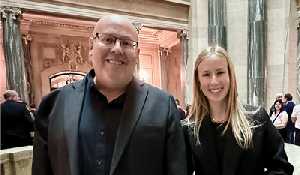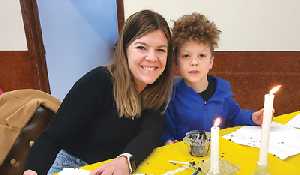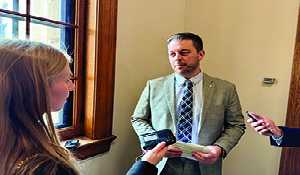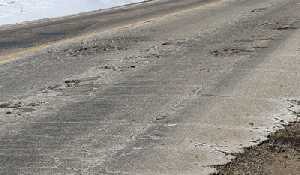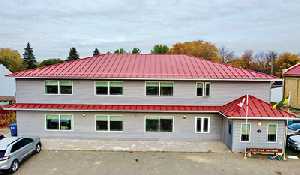Anger, frustration at RQHR meeting
September 27, 2016, 2:16 am
Kevin Weedmark
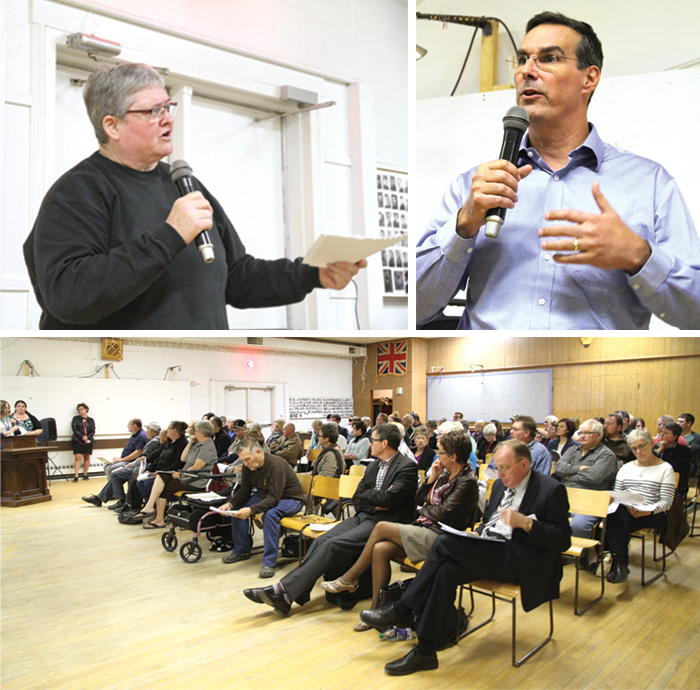

Moosomin area residents, health care employees and a long time local physician all expressed frustration and anger with the health system at a meeting of the Regina Qu’Appelle Health Region board of directors in Moosomin Wednesday.
Dr. Ross Kerkhoff, a longtime physician in Moosomin, expressed frustration with the board.
“The reason, Mr. Chairman, the room is so full, is that people are very concerned, very angry and they have questions as to where we are heading as to health care provision in our area,” Kerkhoff told the meeting.
“I’ve been here for 20 years, I’m a member of the Moosomin Family Practice Centre and we are not part of the primary health care network team. There are two physicians involved and there is a third one joining. We would very much like to collaborate and work as a group because we believe—and I think we’ve proven—that working as a group is the best way forward.
“We started as three physicians and now we are six. We started with one clinic and now have six. Through, I believe, our determination and hard work, we have managed to provide a good service to the area.”
"We provided uninterrupted service up until the last year," said Kerkhoff. "Now I’m not pointing any fingers, but just by way of background, in October 2012 we expressed our concerns to the health region stating that since the hospital was opened in 2008 there had been an exponential rise in the demand for health care services and that was based purely on the fact that we have a growing population, an aging population and lack of services in the surrounding areas.
"Because we were a stable group, a lot of people were accessing our area and our practice for care. That was fine when we had the numbers and we had enough service providers but in time we started losing service providers and surrounding communities lost their service providers, so we were expected to do more with less. Some of that I admit was our fault because we were stable and we do provide a good service so people wanted to go to stability.
"We are also skilled, and with that, we were able to treat people locally and not spend more money by sending them to the tertiary centre.
"We addressed those concerns to the region on the principle of too much demand and not enough supply. We needed help. Our way of getting help was advocating for regional status for the local hospital. We met with the ministry of health and because we don’t have visiting specialists and there are one or two other reasons, we did not receive designation as a regional hospital, so Moosomin remained a community facility.
“The implications of that was that getting new grads and recruiting new physicians and other health care providers was almost impossible.
"New grads would go to other larger rural areas or urban centres even out of province. That’s not just our problem, that happens around the province. We didn’t get regional status, we stayed a community hospital. Then it got to the point that we in the family practice, given the community clinics that we have, it was a case of something needed to give. We couldn’t keep all the community clinics and treating people where they need to be treated—in their clinics, in their home communities, which is a) safer, with less people on the road, and b) more cost effective because you are seeing people in a clinic, and not in a hospital, and I think everyone would agree.
"With that, we also had to service the inpatients in the hospital and the outpatients. We did approach the region and we’ve been collaborating over the last two years for different models of how to provide the service. That’s how we are where we are. The deal currently is that Moosomin Family Practice, which is not part of the primary health care team, does service the community clinics, it does handle all inpatients, obstetric patients, nursing home patients and the ER on weekends. Then the region has employed two SIPPA docs, soon to be a third, to handle the hospital clinic as well as the ER and outpatients Monday to Friday.
"Now we’ve reached a crisis point and that’s why everyone is here, because there has been an interruption of service.
"The question is, where do we go from here? I think we’ve proven a model where a group setting works, we’ve had a proposal put on the table. We’re waiting to see whether that third SIPPA doc is going to want to join all of us so we have eight physicians working together. To my mind, and in the public’s mind, that’s the only way a health care team can survive in a rural area, as a group.
"I’m sure there will be many questions as to why the hospital has been closed, why there’s interrupted service, why it takes three weeks to get a regular appointment. We’ve heard a lot about this is wonderful, this is flowery, but it’s not. We’re in crisis mode and we need to find solutions now."
Earnshaw responds
Karen Earnshaw, Vice President, Integrated Health Services, agreed with Dr. Kerkhoff's concerns.
"I would echo Dr. Kerkhoff's synopsis and the only piece I would challenge is the perception that he Moosomin Family Practice isn't part of the primary health care team," she said.
"I would challenge you to think of the fact that the Moosomin Family Practice has actually been delivering the bulk of primary health care to this community for a very long time. Their model of having core services here and taking clinics out is exactly the same kind of model the province is using to build all of their primary health care teams. I wouldn't see it as the Moosomin Family Practice as not part of that, I would see them as the centre of that primary health care team.
"Where we in the region have been challenged or have not done our due diligence is around building all of that other team around the physicians. That's the piece we're invested in. The concept of a group practice, that's how we're going to stabilize services in our rural communities. That's the only way we're going to be able to recruit to our rural communities. The idea that we would partner together, and we would recognize that service reductions have been occurring, it's not because people aren't paying attention. It's not because people aren't doing the best they can, but when you have limited resources you can't deliver everything. Some of the pieces that haven't been delivered are those acute and emergency services. As we've been able to add more physicians to that pool, we're starting to see those resources stabilize.
"In the past two years, with access to the SIPPA program, we have been able to recruit physicians in Saskatchewan, particularly in our rural communities, in a way that we never have before."
SIPPA allows Saskatchewan to recruit doctors from a wider pool of countries than was previously possible.
"That's how we got more physicians to this community," said Earnshaw. "Do we have enough? Do we have the right number? Probably not, but we are soon to have a third. We are hopeful with the number the Moosomin Family Practice has, and hopefully they can continue to build on their practice, and we will build on our opportunities with SIPPA. And hopefully we will get to that stabilization. Not only do we need those services after hours, but we need those services at the community level so people have another choice besides coming to the emergency room at 8 at night; We never want that door to be closed for people who truly have an emergency.
"We know that, not just in rural, it's very evident in our smaller communities that we haven't provided them other opportunities not because people aren't working as hard as they can, but when there's just not enough to go around that's when people are at our doors for things that would be better managed somewhere else. You're not going to help people manage their diabetes in a way that's going to be long term when you're seeing them at 10 o'clock at night for something urgent. It doesn't mean that they don't need care, it's just that we haven't provided better options for them."
Earnshaw said each health region is given a limited number of seats in the SIPPA program, and the last three seats the RQHR has been assigned have been earmarked for Moosomin. "We've been fortunate in Moosomin to be able to have that opportunity," she said.
The SIPPA doctors are on three year contracts, and Earnshaw said in some communities the doctors have left the community after their contracts are up.
"One thing we're really hopeful for in Moosomin, is this there's a greater chance of retaining them because the community has something to offer that some of our other rural communities do not," Earnshaw said. "There's already a good practice here. It's a stable community with the ability to encourage one of those candidates to stay here.
Problems staffing lab
Earnshaw said some of the service disruptions have been due to staffing issues in the lab at the Southeast Integrated Care Centre.
"We currently are struggling to get qualified folks in our lab. Not to say that the people working in our lab now aren't doing the very best they can, we just don't have enough of them. We're looking at ways to recruit more, change the model. That impacts our ability to keep the doors open in the emergency room because the legislation says you cannot have emergency services at a site that does not have access to those lab and diagnostic services.
"We have to put the site on bypass because in an emergency time is valuable and there is no sense wasting the time of an ambulance to stop here if you can't do the basic diagnostics."
One person questioned if there are any permanent full time positions being recruited for the lab.
"The lab, their real challenge here is the call and the after hours," Earnshaw said. "Their ability to support the day time and the night time work, that's where we're challenged. I heard someone asking are we recruiting permanent full time. We're recruiting anybody and everybody. Yes, we're posting permanent full time but if someone came to us and said I only want to work three days a week we wouldn't turn those away."
The four publicly posted positions for the Southeast Integrated Care Centre lab as of Thursday included three were listed as relief/casual positions with hours on call as required, and one temporary full time position ending Dec. 1 of this year. None were identified as permanent full-time.
The RQHR provided the following response Friday when asked about that: "There are multiple postings on the RQHR website including CLXT (Combined Lab/ Xray Technician) and MLT I (Medical Lab Technician) positions available for SEICC. We also post for a blanket MLA (Medical Lab Assistant) and any rural resumes are forwarded to our Human Resources consultant.
"The CLXT (Combined Lab/ Xray Technician) position has been moved to the informational job board and we just reposted some positions internally and externally today."
Regional Hospital designation
Pansy Taylor asked if there was any way to pursue regional hospital designation for the SEICC.
"There are certain criteria for that and we have been in conversations on that with the ministry," RQHR CEO Keith Dewar said. "It's clear from the criteria they have that it doesn't meet their criteria. Unless we can change the criteria at the ministry, it's not there right now.
"From our conversations with the ministry there seems to be no interest in changing that. We could ask them again but it's not our decision. You can talk to your local MLA and go through that process, but the criteria is set from a provincial perspective."
There are currently five regional hospitals in Saskatchewan—Moose Jaw, Swift Current, Yorkton, North Battleford, and Melfort.
Dewar was asked if additional funding would be available if the facility was designated a regional hospital.
"My assumption is if it meets that criteria the funding would flow through, but I can't guarantee it would, and the amount of funding we get in a broad way has been challenged anyway," Dewar said.
Moosomin MLA Steven Bonk said he has raised the issue of regional status with the health minister.
"I was elected April 4 and I met with the health minister on April 6 to ask him about regional status," Bonk said. "Then there was a shuffle. The day after the shuffle I met with the new health minister, and they are very aware of this, so hopefully we will be hearing something soon."
Dewar questioned
Catherine Dorcas questioned CEO Keith Dewar when he said at the meeting that up to 40 per cent of health care spending is not effective.
“Physicians drive the system,” he said. “Physicians are the ones that order tests, order procedures, and determine what gets done. How we structure that relationship with physicians is pretty critical. We have a pretty solid relationship with the Saskatchewan Medical Association. That is leading to conversations about how we can work better together to deliver better quality, better value for the people of the province.
“The current resources being used in our system are not always leading to better health. A lot of the things we spend our money on don’t necessarily lead to better health. People find that hard to accept at times when you think of your interactions with the system, but the evidence is quite clear that it could be 30-40 per cent of the expenditure that could be better used to deliver better care.
“Part of the work of the physicians is to ensure that the work they do and the care provided and the care funded provides better outcomes.”
“Are you saying the resources not always providing better health care is the physicians’ fault?" Dorcas interjected.
“That’s not what I said,” Dewar replied.
“That’s what I heard,” Dorcas said.
“The decisions we make may not always be the best decisions,” said Dewar.
“Yours or the physicians?” asked Dorcas.
“The physicians as well,” said Dewar. “But it’s not because things are wrong, it’s that they’re inappropriate. It’s quite clear. We can provide you some evidence if you like, some of the research in those areas to show that some things we order, some tests we order, some things we do because of the past practice or for a number of different reasons, but we understand and know that some of those decisions could be better or could provide better outcomes. The physicians themselves would agree with that as well.
"Appropriateness and choosing wisely was an issue for the Canadian Medical Association. It’s all around the types of choices people make and physicians make and how they can improve those decisions to provide better health. It’s not that they’re wrong, it’s just that they could be better.
“Some of the things they do now are appropriate and done quite well, but there is a fairly significant amount of money spent on health care that could be used better than what it is currently. I’m not saying they’re making bad decisions, but the decisions could be better.”
“We could all make better decisions,” said Dorcas.
“I agree,” said Dewar. “I could make better decisions.”
"Putting lives in jeopardy"
"I think we have one of the greatest health care systems in the world," said Dorcas, "but my greatest concern is you are responsible for the people in our health districts, and I believe you are putting lives in jeopardy. I don't know if you've been to open access but it's neither open nor accessible unless you make an appointment far in advance.
"What you're saying is not what you're doing. I know a lot of people from this community who have had their lives saved by seeing one of our usual local physicians at the ER.
"Why I'm so upset is you are putting people's lives in jeopardy, and I think you need to answer for that. That's your responsibility as people on the health board. Otherwise maybe some other people should be on the health board."
"I appreciate your opinions and observations," Dewar responded. "I'm not sure why our decisions are putting people in jeopardy. We are working hard to find physicians, we are working hard to find supports as best we can."
"Every time our hospital is closed every person in this community and surrounding communities is in jeopardy," said Dorcas. "On Friday I took someone to the hospital, and it was closed so you had to go to Virden, Kipling, Broadview, Grenfell or Regina.
"The number of people I'm talking about right now whose lives would have ended if they hadn't had STARS or the ambulance and our physicians . . .You just don't get it, do you?"
"Actually we do get it," said Dewar. "We are working at finding more resources. It's not easy to find people. You can't force people to go somewhere. We're trying to bring them on. Can we go faster? Most likely yes. Are we doing the best we can? We are trying very hard."
"As a board, that is your job and you are responsible to every person who is in this room and all those who are not in this room," said Dorcas.
"We are responsible for 284,000 people and the other 220,000 in southern Saskatchewan and the board takes that seriously and so do I," said Dewar.
"We have challenges across the whole system and unfortunately for us we are responsible for all of those people. We know we can't keep everyone happy. But we know from the work we're doing that we continue to move forward and work hard to improve access to all of those citizens, all 284,000 who are part of our health region and the other 220,000 across southern Saskatchewan. But we can do a lot better, I agree with that."
One person questioned how much work goes into recruiting physicians to cover so the SEICC does not have to go on standby.
"We work on that months ahead," said Earnshaw. "We work on it every day. We work on it on short notice, and long term. We've created permanent locum positions within the health region.
"Unless somebody is sick or something has happened rarely do we find out at 9 o'clock in the morning that they're not available at 4 o'clock this afternoon."
However, staff said they have sometimes been given that little notice. It was also pointed out at the meeting that there is no public notice when the facility has gone on standby. Notice has never been provided to the media of service interruptions and it has been left up to staff to inform people or field calls from the public.
Earnshaw said she believes the situation will improve with the arrival of the third SIPPA physician.
"Just make damn sure you don't cut any more services in Moosomin," Neil Russell commented. "Just make damn sure you don't cripple or put handcuffs on the people we have in town here now as doctors, because they're the best damn doctors you will ever see."
Funding basis questioned
Kyla Fingas asked about the census data used to assign funding to health care facilities, as the latest census data available is from 2011, and asked about the impact of people from outside the area using services in the area.
“I’m just wondering if you have an updated number as this area has been continuing to grow. In addition I would like to know how many additional people have been using the health services in Moosomin who are not part of our region.
“We do rely on census data,” said Earnshaw. “It’s the data the ministry uses to allocate our resources and define our services and unfortunately the census data is always behind. As you know we all just completed a new census and we probably won’t get that data now until the spring, but we certainly track the resources that are used, who comes through the Southeast Integrated Care Centre, so we can actually know how many people are from RQHR and how many people are from outside. Approximately 26 per cent of the people presenting are from outside of the region.
"That census data that captures our boundaries, part of that is the health seeking pattern, so people who routinely seek their services here are captured in some of that data. What it doesn’t capture is our migrant population. All of you who live in this community know that it’s unique to this area. We know on top of that there are the folks who actually come here for work but aren’t captured in our data. That is a moving number. We know that we have had times when there is on any given day an additional 5,000 people who are living in this area for work. Those number are not captured.”
Fingas asked about the campaign to have doctors order more "appropriate" tests.
“My other question is how much do you expect to save on the chance that you might miss a diagnosis by asking doctors to prudently order tests," she said.
Dr. David McCutcheon, vice-president of Physician and Integrated Services, responded.
“The appropriateness agenda is a very broad one," he said. "Just an example we had today is how we give blood products. We look at the number of patients who have total knee replacements for example. There are a certain number of those patients who post-operatively have blood replacement. So they get one unit or two units. Some people get two units when one unit is enough, and some people get one unit when they didn’t need any blood at all because their blood level wasn’t to a threshold that required a transfusion. So what we need to do is make sure all of our physicians are aware of the latest evidence and make sure that all of our patients are properly prepared in advance of their surgery so we won’t be ordering blood that is not necessary. As you know, blood products can be dangerous, they can be part of the transmission of illness from one person to another.
“Other examples are antibiotics," added McCutcheon. "Some people will demand of their physician an antibiotic for a viral illness—a flu or a cold—and they’re prescribed antibiotics when they’re not necessary. We need to make sure that we’re very careful that we as physicians understand the latest evidence, we understand best practice in our own area of practice.”
Lack of mental health services
One man at the meeting questioned the lack of services provided by the health region in Moosomin relative to the number of physicians practising locally.
“You have visiting people who come into our area, but there isn’t enough service provided for the number of people who need the help in Moosomin. There are more doctors looking after people here than there is in all of Twin Valley (a primary health care grouping including Grenfell) and that’s where (the medical service providers) are all sitting. I needed help with mental health in Moosomin for a long time, and I didn’t get it. I got ripped off and I want to know why.”
“We do struggle with staffing in those areas as well,” said Desiree Neville. “Once we are fully staffed it looks much better, but we do go through periods where we struggle with staffing.”
“In Regina-Qu’Appelle access to mental health services has been a challenge,” said Earnshaw. “It’s not unique to Regina-Qu’Appelle but it’s certainly a challenge that we’ve had. This province is challenged by it. We’ve recruited additional psychiatrists because they like the team model they’re offered now, and now those psychiatrists are setting up the ability to visit communities and to visit physician practices. We have examples where in a physician practice we have a psychiatrist visit to manage the cases within that physician practice.
“We’re starting to see that in long term care. We’ve seen that in Regina. We’ve got some days in Fort Qu’Appelle, we’re starting to build into Grenfell, and Moosomin will certainly be on that next radar.
"The ability to attract a specialist to a rural community is a challenge. Their colleague relationship, their ability to work in a team with other specialists like themselves is a challenge. The evidence shows us that if you recruit to a team and then you distribute that out, you’re more likely to keep those people, they will have high quality satisfaction in their work, and then people will get the service that they need.”
That answer didn’t satisfy the questioner.
“When you’ve got the amount of doctors as you have in Moosomin as well as the ones you send out to Moosomin for the open access, if there are that many physicians in this area looking after so many people why are there not more services offered here?" he asked.
“When you look at the list, it’s clear there are disparities,” said Earnshaw. “There are disparities between Moosomin and Twin Valley but I would challenge you to look at the disparities even further when you consider the population with the Touchwood Qu’Appelle. So in the ability to distribute resources across that big area, we are challenged. We recognize that we don’t have the same provider for every one of those communities, but we have to look at where people live.
"The fact that we have an occupational therapist that might have been located in another community, the fact they can recruit in Moosomin and have someone local, that changes where their base is and where they cover. It’s a matter of how do you stretch very scarce resources across the whole population.
"Further than that, we have to look at what the population needs. We have to break down, right at the determinants of health what are the kind of providers we need in that area, based on the demographics. We’ve never actually allocated our staff across the region in that way, but that is some of the work we’ve done.
"We have broken our communities into here’s what you have here’s where your seniors live, here’s where the folks that are having babies live, and started to allocate our providers out based on who lives in those communities. In rural that’s an even bigger challenge because you have communities that are farther apart, some of them are small but primarily you’ve got lots of people on both ends of the spectrum. You have lots of seniors but you also have that growing population, which is good, but we don’t have all those ones in the middle, and that’s where we would attract much of our labor force as well, so we’re challenged across those rural communities to distribute evenly. But the real focus is on the population need.
“We know we don’t have enough to go around everywhere, but how do we support the providers. How do we help the physicians in this community—by bringing in some of those other providers who would be helpful to them so that physician who actually can do all of those things doesn’t necessarily have to take the time to do those things that someone else can do, so that physician can access the dietition or make that referral to the physiotherapist. It’s not that the physician doesn’t know those things or couldn’t do all those things, but we want our physicians to do the more complex things.”
The questioner pointed out that Moosomin serves a huge area with its health care services. "When the demand is there from the people who come to Moosomin, it’s not just from Prairie East. Sun Country, Manitoba, you name it. They’re coming from right down to the US border," the questioner pointed out. "They’re coming to where they can get help and we need more people here to help."
“You’re right, many of our people come from outside our borders and we are required to think and act as one," said Earnshaw. "Regardless of where you come from we provide service. When somebody lives in Sun Country and seeks part of their primary health care services here, which is most likely their physician services, we are building those linkages back to those services that exist in Sun Country. So when they need a home care nurse that home care nurse doesn’t need to be housed here, we just need to connect them to their home care nurse in their home community. If they need a physiotherapist then we need to be able to better link them to that physiotherapist that is in Sun Country. Do they all need to be housed here if you live in another community and particularly another health region? No, but we in the system need to make those linkages better."
Question about long term care
Beverly Yeo raised a question about long term care.
"As a family member of a loved one in long term care I have become very annoyed with how it is spoken of that families of long term care residents are to be included in the care of their loved one," said Yeo. "I find that is totally verbal, not much action. I am setting out a challenge this evening to primary health care. We have talked a lot about how people are to take care of themselves. I have been through many crises in my life and I've never been through a crisis like I'm dealing with now with my loved one in long term care. I challenge RQHR and primary health care to address families in the care of loved ones. We need help. It is just unreal the things we have to cope with on a daily basis, making sure our loved ones are cared for adequately. I have been advocating for some time for a family network within the health region or within our local community. This has to be done apart from people who work with our loved ones because if we speak out as an advocate for a loved one or others in the system there are repercussions against our loved one as well as the family. I have received mental, physical, verbal, emotional and spiritual abuse because I am an advocate for my loved one as well as some other people who don't have advocates in long term care."
"That's a challenge we need to step up to," said Earnshaw. We want you to be an advocate. The idea that you don't feel you can be that advocate because the care of your family member or others is jeopardized, that's something we definitely want to address. We will follow up with you, we will get your information and we will hear your story."
"I am disappointed, but I've heard that before, that sometimes if you say something it feels like it has repercussions and may have actual repercussions in the type of care provided," said Dewar. "Sit down and help us understand a bit more. My commitment to you is that we will help those people understand that when someone raises an issue that needs to be taken seriously we need to work our way through it and do so in a way that doesn't jeopardize the individual you are advocating for or yourself. It would be fair to say there is some fear in the system to speak up and we have a long way to go to address that. We are working hard at it. We will continue to work with you on that."
He said on a recent tour of facilities he tried to meet with residents and families one on one to hear their feelings. "To date the ones I've talked to have been quite positive. There's some really great care being provided but there's much work to be done as well."
Financial crunch
RQHR chair Dick Carter said the health region is facing a financial crunch. The region has a deficit of $14 million this year, on a budget of $1.04 billion."We have a growing population which increases demand," he said. "We have an aging population, which increases demand. With that, we have had funding increases from the government but we've been asked to find efficiencies. We've found them, but not enough to make up for the growth we have in the population and the demographics. It's something we're working very hard on but have not had an easy answer yet and we will continue to work on that."
In commenting on consultations on health care reform in Saskatchewan, Carter said "There's been a lot of talk about administrative costs—that administrative costs are very high. You know what, the figures we see show that we are very comparable or in good shape in terms of the amount we spend as regions in Saskatchewan compared to the Canadian average."You can't just emphasize the administrative costs because you will not achieve the savings you need. You need transformational change, which means some tough decisions. It also means investing. We need to invest to achieve results. It will take time."

























